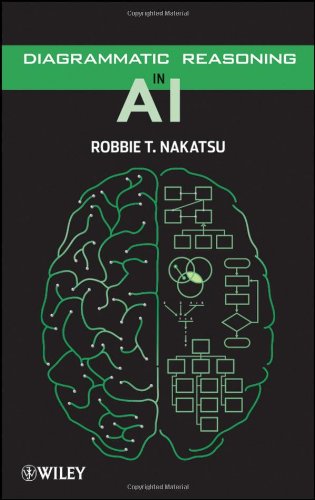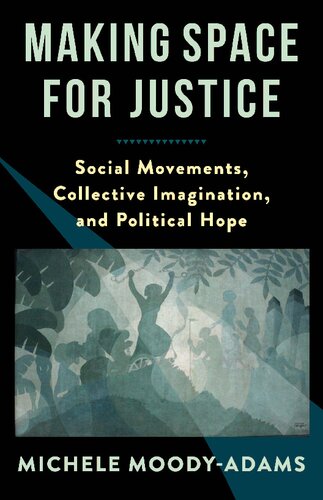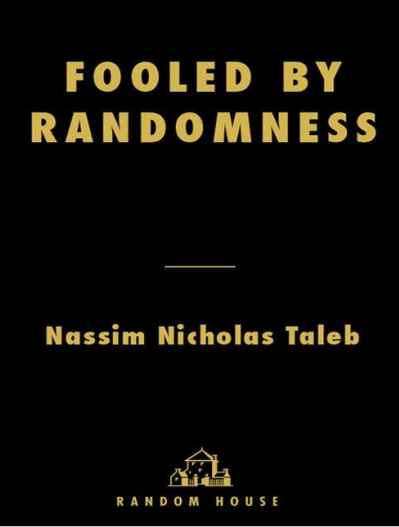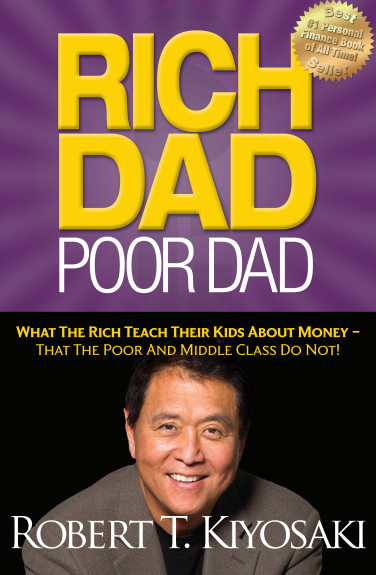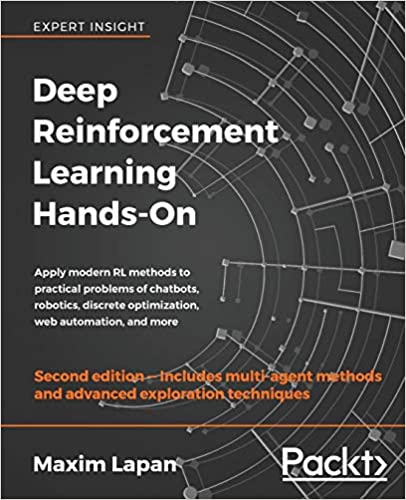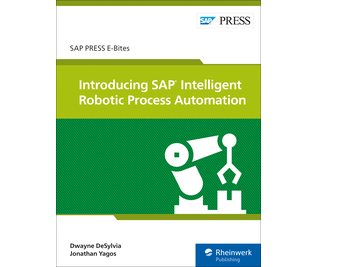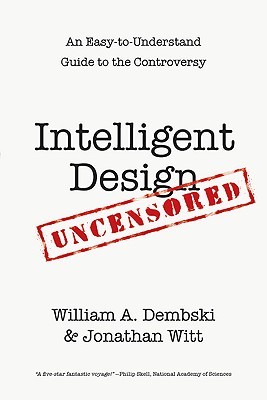موضوعات
آموزش و پرورش
ادبیات و زبان
پزشکی، دندانپزشکی و داروسازی
تاریخ و جغرافیا
داستان و رمان
دیگر
دین و فلسفه
روانشناسی
ریاضیات و آمار
سلامتی، تناسب اندام و رژیم غذایی
شیمی و پلیمر
علوم اجتماعی و حقوق
علوم زیستی و بیوتکنولوژی
فیزیک و نجوم
کامپیوتر و اینترنت
کتابهای کودکان و داستان
کسب و کار و اقتصاد
کشاورزی و دامپزشکی و غذا
معماری
مهندسی و فناوری
هنر و تئاتر
محصولات
Diagrammatic Reasoning in AI - Original PDF
نویسندگان: خلاصه: Pioneering work shows how using Diagrams facilitates the design of better AI systems The publication of Diagrammatic Reasoning in AI marks an important milestone for anyone seeking to design graphical user interfaces to support decision-making and problem-solving tasks. The author expertly demonstrates how diagrammatic representations can simplify our interaction with increasingly complex information technologies and computer-based information systems. In particular, the book emphasizes how diagrammatic user interfaces can help us better understand and visualize artificial intelligence (AI) systems. It examines how diagrammatic reasoning enhances various AI programming strategies used to emulate human thinking and problem-solving, including: Expert systems Model-based reasoning Inexact reasoning such as certainty factors and Bayesian networks Logic reasoning A key part of the book is its extensive development of applications and graphical illustrations, drawing on such fields as the physical sciences, macroeconomics, finance, business logistics management, and medicine. Despite such tremendous diversity of usage, in terms of applications and diagramming notations, the book classifies and organizes diagrams around six major themes: system topology; sequence and flow; hierarchy and classification; association; cause and effect; and logic reasoning. Readers will benefit from the author's discussion of how diagrams can be more than just a static picture or representation and how diagrams can be a central part of an intelligent user interface, meant to be manipulated and modified, and in some cases, utilized to infer solutions to difficult problems. This book is ideal for many different types of readers: practitioners and researchers in AI and human-computer interaction; business and computing professionals; graphic designers and designers of graphical user interfaces; and just about anyone interested in understanding the power of diagrams. By discovering the many different types of diagrams and their applications in AI, all readers will gain a deeper appreciation of diagrammatic reasoning.Making Space for Justice: Social Movements, Collective Imagination, and Political Hope - Original PDF
نویسندگان: خلاصه: From nineteenth-century abolitionism to Black Lives Matter today, progressive social movements have been at the forefront of social change. Yet it is seldom recognized that such movements have not only engaged in political action but also posed crucial philosophical questions about the meaning of justice and about how the demands of justice can be met. Michele Moody-Adams argues that anyone who is concerned with the theory or the practice of justice―or both―must ask what can be learned from social movements. Drawing on a range of compelling examples, she explores what they have shown about the nature of justice as well as what it takes to create space for justice in the world. Moody-Adams considers progressive social movements as wellsprings of moral inquiry and as agents of social change, drawing out key philosophical and practical principles. Social justice demands humane regard for others, combining compassionate concern and robust respect. Successful movements have drawn on the transformative power of imagination, strengthening the motivation to pursue justice and to create the political institutions and social policies that can sustain it by inspiring political hope. Making Space for Justice contends that the insights arising from social movements are critical to bridging the gap between discerning theory and effective practice―and should be transformative for political thought as well as for political activism.When the Diagnosis Is Multiple Sclerosis: Help, Hope, and Insights from an Affected Physician - Original PDF
نویسندگان: خلاصه: THE NAME , “MULTIPLE SCLEROSIS ” I have a very hard time with the name of this illness—“multiple sclerosis.” It has such a horrific sound to it. Even after seven years, I rarely say the words multiple sclerosis aloud. I much prefer the more appealing sound of MS. In speaking to others with multiple sclerosis (MS), I have learned that I am not alone with this preference. At the time I was diagnosed, I was somewhat familiar with this illness, hav- ing intermittently cared for multiple sclerosis patients in the hospital. Most of the patients I had seen were diagnosed with MS in the 1970s or 1980s, a time when medication for relapse prevention was not yet available. Others, who were frequently in the hospital, had a variant of MS called “primary progressive multiple sclerosis,” which can lead to significant disability fairly quickly. As a physician, I thought their situations were so very sad, as many patients had developed poor functioning of their arms, legs, bladder, or speech. I rarely had the opportunity to see the MS patients who had very little disability, since they were seen in the outpatient setting. So when I finally had it con- firmed, that yes, these bizarre symptoms I had been having were in fact due to multiple sclerosis, I conjured up the worst possible images of what might happen to me. While many of you may not have had the opportunity to meet patients with more advanced stages of MS, I suspect that your reaction to the diagnosis of MS may have been quite similar to mine. Many people still carry an image of multiple sclerosis as an illness that picks an individual out of the prime of his or her life, and leaves that person wheelchair bound and severely disabled. Fortunately, for the majority of women and men who are newly diagnosed with relapsing–remitting MS in the new millennium, this is not an inevitable outcome. And yet, while we know that medications now exist to prevent relapses, this knowledge does not necessarily make the initial journey any 2 When the Diagnosis Is Multiple Sclerosis easier. We did not sign up for this club. We did not ask to play this game. The anger, the grief, and the uncertainty about the future can be overwhelming. Give yourself time. It will be possible to feel in control again.Fooled By Randomness - PDF
نویسندگان: خلاصه: This is my book summary of Fooled by Randomness by Nassim Nicholas Taleb. My notes are informal and often contain quotes from the book as well as my own thoughts. This summary also includes key lessons and important passages from the book. According to Taleb, the book's most popular chapter was Chapter 11, the one in which he compressed all the literature on the topic of miscalculating probability. Important point: “it's more random than we think, not it is all random.” Chance favors preparedness, but it is not caused by preparedness (same for hard work, skills, etc.) “This business of journalism is just about entertainment, particularly when it comes to radio and television.” As much as we want to “keep it simple, stupid” … It is precisely the simplification of issues that are actually very complex, which can be dangerous. “Things that happen with little help from luck are more resistant to randomness.” “Mild success can be explainable by skills and labor. Wild success is attributable to variance.” One common theory for why people pursue leadership is because of “social emotions” which cause others to be influenced by a person due to small, almost imperceptible physical signals like charisma, gestures, and gait. This has also been shown via evolutionary psychology: when you perform well in life, you get all “puffed up” in the way you carry yourself, the bounce in your step, etc. From an evolution standpoint this is great because it becomes easier to spot the most successful / desirable mate. The concept of alternative histories is particularly interesting. If you were to relive a set of events 1000 times, what would the range of outcomes be? If there is very little variance in your alternative histories (i.e. You chose to become a dentist and you will probably make more or less the same amount of money and live a similar lifestyle all 1000 times), then you are in a relatively non- random situation. Meanwhile, if there is a very wide range of normal results when considering 1,000 variations (entrepreneurs, traders, etc.), then it is a very random situation. The quality of a choice cannot be judged just by the result. (I first learned this in baseball. Just because a pitch you call or play you call doesn't work out doesn't make it a poor choice. It could have been the right call, but bad luck. Or vice versa.) “Certainty is something that is likely to take place across the highest number of different alternative histories. Uncertainty concerns events that should take place in the lowest number of them.” You should think carefully about getting more insurance / shielding yourself from events that — although unlikely — could be catastrophic. You essentially want to insulate yourself from terrible random accidents. We have a tendency to see risks against specific things as more likely than general risks (dying in a terrorist attack while traveling vs. dying on your next trip, even though the second includes the first). We seem to overvalue the things that trigger an emotional response and undervalue the things that aren't as emotional. We are so mentally wired to overvalue the sensational stories that you can “realize informational gains by dispensing with the news.” Fascinating famous Swiss study of the amnesia patient who couldn't remember doctor's name but did remember him pricking her hand with a pin. “Every man believes that he is quite different.” It's better to value old, distilled thoughts than “new thinking” because for an idea to last so long it must be good. That is, old ideas have had to stand the test of time. New ideas have not. Some new ideas will end up lasting, but most will not. The ratio of undistilled information to distilled is rising. Let's call information that has never had to prove its truth more than once or twice, undistilled. And information that has been filtered through many years, counter arguments, and situations is distilled. You want more distilled information (concepts that stand the test of time and rigorous analysis) and less undistilled information (the news, reactionary opinions, and “cutting edge” research). There is nothing wrong with losing. The problem is losing more than you plan to lose. You need clear rules that limit your downside. (“If any investment loses one million dollars then our firm sells immediately.”) Much of what is randomness is timing. The best strategy for a given time period is often not the best strategy overall. In any given cycle, certain places will be dangerous, certain trading strategies will be fruitful, etc. If you find yourself doing something extraordinarily well in a random situation, then keep doing what's working but limit your downside. There is nothing wrong with benefitting from randomness so long as you protect yourself from negative random events. Randomness means there are some strategies that work well for any given cycle (an extreme fad diet), but these cycles are often short to medium term successes. More importantly, the strategies that work for a given cycle in the short term may not be the best for long run. They are sub optimal strategies winning over a randomly beneficial short term cycle. The same can said for setting huge goals, following a fad diet, chasing an extreme training protocol, and so on. Unsustainable and suboptimal for the long term. In this way, evolutionary traits that are undesirable can survive for a period of time in any given population. That is, suboptimal strategies and traits can seem desirable in the short run even though they will be resoundingly defeated in the long run. Important point: you can never affirm a statement, merely confirm its rejection. There is a big difference between “this has never happened” and “this will ever happen.” You can say the first, but never truly confirm the second. It just takes one counter example to prove all previous observations wrong. We never know things for sure, only with varying degrees of certainty. There are only two types of ideas. Those that have been proven wrong and those which have yet to be proved wrong. (Feynman said something similar.) Strive to become a man of leisure who can afford to sit with ideas, think properly about them, and gradually provide something of value. Science is speculation. This is important to remember. Scientists are simply creating well-formed and well-educated conjectures about the world. But they are still conjectures that can be proved incorrect by one random event. It's a difficult standard to demand that you can actually implement ideas and not merely share them (there have been many brilliant philosophers and scientists who have had great ideas they didn't personally use), but is an idea really that great if you can stick to it? Obviously, everyone has different skills and circumstances, so maybe someone can use your idea even if you can't. But generally speaking, I think you should be able to live out the ideas you share. Pascal: “the optimal strategy for humans is to believe in the existence of God. For, if God exists, then the believer will be rewarded. If God does not exist, the believer will have nothing to lose.” My first thought: “yes, but what if you believe in the ‘wrong' God?” Should you play a numbers game and believe in the God most people believe in? Or, can we safely assume that of the infinite number of possible Gods humans could have designed it is unlikely that any of the ones we worship are actually the God? So, just believe that a higher power exists? Whew. Tough call here. Social treadmill effect: you get rich, move to a better neighborhood, surround yourself with more successful people, and feel poor again. “Remember that nobody accepts randomness in his own success, only his failure.” Skewness and expectations: you can't just look at the odds of something happening, but also the payoff you receive if it works (and the cost of it failing). A bet on something very unlikely can be smart if the payoff is large and you have rules to limit the many small losses that are likely. Minor stalemates in life can often be solved by choosing randomly. In many cases it doesn't really matter so long as you choose something and move forward. We follow rules not because they are the best options, but because they make things fast and easy. Humans are inherently flawed. The cognitive biases that we have are simply a result of how our brains work. Sometimes these biases help us rather than hurt us. But they are always a result of how we are built. That makes them particularly difficult to avoid. We seem to focus too much on “local” changes, not global ones. That is, we care too much about the latest change rather than the overall trend. “Wealth does not make people happy, but positive increases in wealth may.” We do not think, but use heuristics to make decisions. Emotions are “lubricants of reason.” We actually need to feel things to make decisions. Emotions give us energy and they are actually critical to life in the day-to-day world. In other words, the goal here is not to become a robot who can analyze everything with perfect logic. Even if you know about randomness and cognitive biases, you are still just as likely to fall victim to them. How to overcome these biases? We need tricks. We are just animals and we need to re-structure our environment to control our emotions in a smart way. “Most of us know pretty much how we should behave. It is the execution that is the problem, not the absence of knowledge.” “I try to remind my group each week that we are all idiots and know nothing, but we have the good fortune of knowing it.” Do not blame others for your failures. Even if they are at fault. The only aspect of your life that fortune does not have control over is your behavior. Repetitiveness is key for determining if you are seeing skill or randomness at play. Can't repeat it? Not skillful. “We favor the visible, the embedded, the personal, the narrated, and the tangible. We scorn the abstract. Everything good — aesthetics, ethics — and wrong — fooled by randomness — with us seems to flow from it.”Rich Dad Poor Dad - Original PDF
نویسندگان: خلاصه: “Life pushes all of us around. Some people give up and others fight. A few learn the lesson and move on. They welcome life pushing them around.” “A job is really a short-term solution to a long-term problem.” “It’s fear that keeps most people working at a job: the fear of not paying the bills, the fear of being fired, the fear of not having enough money, and the fear of starting over.Deep Reinforcement Learning Hands-On: Apply modern RL methods to practical problems of chatbots, robotics, discrete optimization, web automation, and more (2nd Edition) - Orginal Pdf
نویسندگان: خلاصه: Deep Reinforcement Learning Hands-On: Apply modern RL methods to practical problems of chatbots, robotics, discrete optimization, web automation, and more, 2nd Edition by Maxim Lapanآیا کتاب مورد نظر هنوز بر روی سایت قرار نگرفته است؟ جای نگرانی نیست! کافی است بر روی گزینه سفارش کتاب کلیک کرده و درخواست خود را ثبت کنید. در کمتر از چند ساعت کتاب شما را آماده خواهیم کرد.
